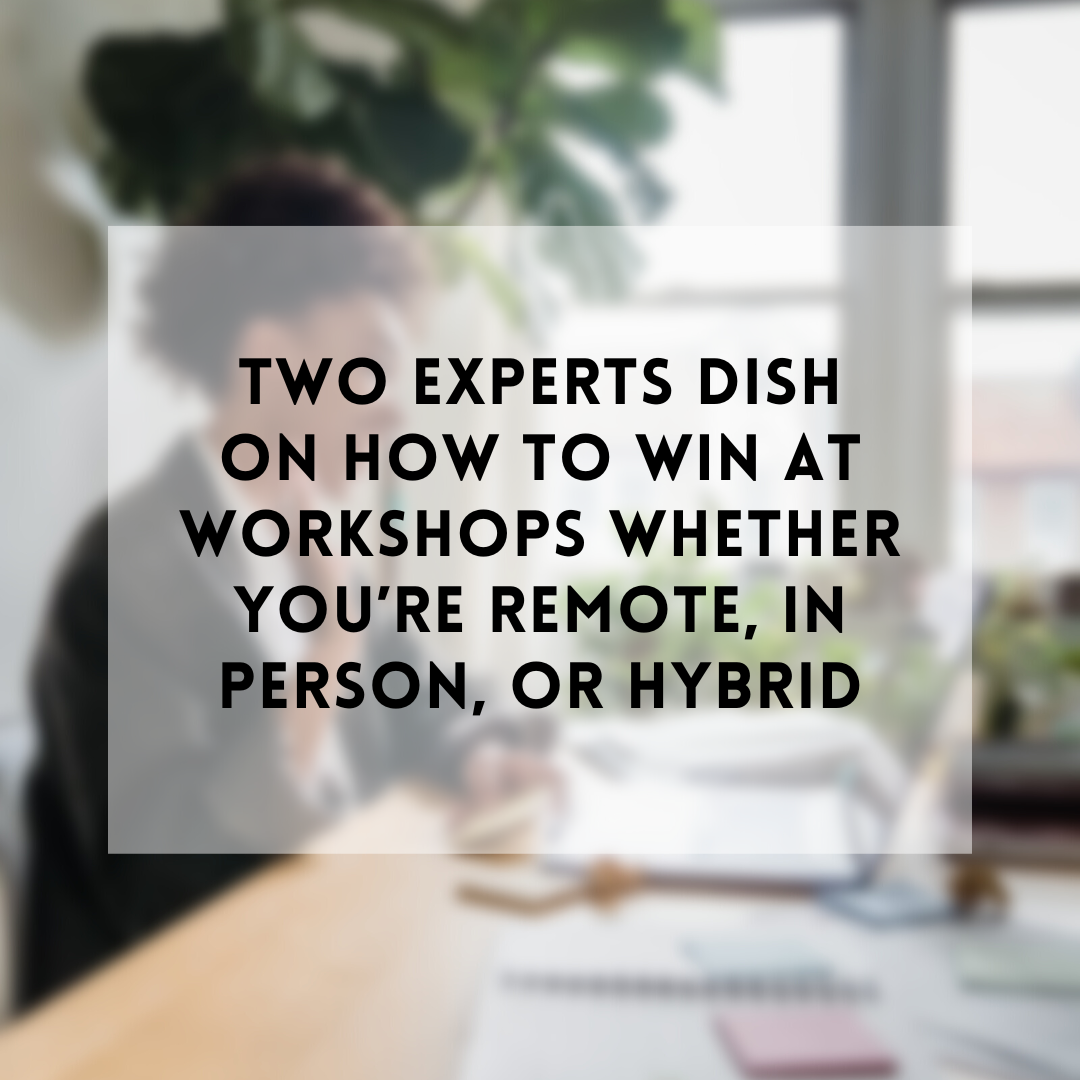Whether you’re a facilitator or a business leader, here you’ll find resources, tools and how-to guides aimed at helping your teams — and your business objectives — achieve their potential.
If you open a meeting with icebreakers, end with these wrap-up equivalents for better closure
If you’re looking for a more meaningful and actionable way to wrap up meetings, take a look at these 5 options for closing your next session. They’re organized based on the scenarios meeting leaders and facilitators often find themselves in, with practical advice for each.
Killer resources for curious, creative people
Are you committed to constant discovery? Do you like learning about yourself and the world around you? Is curiosity something hardwired within you, or something you aim to cultivate more of? If so, I’ve got a few amazing resources to share that will speak to anyone who loves to reimagine what it means to live and thrive in this world.
More icebreakers you can steal for better meetings
What helps start a hard meeting on a positive note? How do you encourage team members to think bigger? The answer: icebreakers. I thought I’d share a few more scenarios in which they’re particularly helpful. Feel free to copy and paste them into your next session!
Affirmations you can use to lead with more confidence
Did you know there’s actual science behind the power of self-affirmations? Also called mantras, the practice of repeating an affirming word, sound or phrase is enough to help us feel more positive, cope with perceived threats, and become happier. I think this concept can sometimes feel silly or self-indulgent, but the truth is that it's effective! When we believe in ourselves we do better work, and that’s particularly important if you regularly guide groups who depend on your energy, direction and knowhow.
Getting started in facilitation? Avoid overwhelm with my list of tools
Considering leaning in and doing more facilitation? Maybe you’re already leading groups in some capacity and want to do more of it, or perhaps you’re just curious about taking the leap from your current role into a new field. I put together my favorite resources, how-to guides and references that I think will be most helpful for those of you who are just getting started.
Get better at guiding people by cultivating these 5 behaviors
Facilitators are present in many industries and professions, from business leaders to yoga instructors. If you regularly find yourself at the helm steering people through experiences, these five behaviors are something you’ll want to pay attention to as you hone your facilitation skills.
3 ways to embrace constraint to unlock creativity
Constraint is critical to making sure ideas come to fruition. When we stop perceiving it as a barrier to success and instead embrace it as a necessary component to innovation, only then can teams tap into their best creative ideas — the ones that move the needle for the business, and provide deep value to the customer. Here are three ways to lean in.
Plan and pace activities like a pro with the 5 chapters of workshop design
Most workshops follow a common arc from beginning to end, with five very distinct chapters along the way. Understanding these chapters and the goals for each can be helpful in narrowing down or honing in on the right activities to use to help achieve the desired outcomes for your workshop. Take a look at the chapters and a few example methods to make the planning part of your job a lot more straightforward.
Stock your facilitation “go-bag” with these tools so you’re prepared for almost anything
With the return of more in-person work comes the return of more in-person workshops, and that means that we facilitators need to be prepared with the right toolkit for live gatherings. Here’s a list of the items that you might want to keep in you facilitation “go-bag” at all times.
Why workshop facilitators should opt for de-titled introductions
Did you know that most people agree de-titled introductions are preferred when kicking off workshops and meetings? Here’s why it’s so powerful, and the benefits it brings to the workshop space.
How meeting facilitators can overcome their biggest fears
You can’t make unruly or unwilling attendees disappear from meetings and workshops, but you can control how you prepare, respond and engage in real time. Doing so will make the workshop experience better for you and your participants. Here are five tips for navigating this area.
Playing Field: My go-to method for defining success
When facilitating teams embarking upon strategic work, one of the most important alignment exercises you can cover is defining what success looks like. My go-to is the playing field method, where success is defined by the participants in terms of good, better and best. Those milestones can refer to interim goals that happen en route to a home run, or different versions of success that range from most realistic to most ambitious. Here’s how to do it.
Horizons: My go-to method for wrapping up a session
You know that really long follow-up email that goes out after most meetings? This exercise aims to eliminate it by asking teams to align on what should happen next before they leave the room. Try my Time Horizons activity at the end of any strategic workshop, Design Sprint, or big meeting as a way to organize what will happen next, and who will be responsible for doing it by when.
Assets & Liabilities: My go-to method for taking inventory with teams
Assets and liabilities is an exercise I often facilitate with teams to take an inventory and drive a shared understanding of what’s working for and against the team. It’s super straightforward and something you can include in many endeavors, from strategic planning workshops and idea-generation sessions, to prototyping workshops.
How to handle derailing questions during workshops
Participants may consciously or subconsciously derail agendas and workshops. The key is not to take it personally or let it derail you. When you keep the group oriented around the agreements you made up front, it’s a lot easier to keep the train on the track. Here’s my guide for doing just that.
4 books to read this fall
With a new season comes a new list of my recommended reading! In this installment of titles that traverse my personal and professional interests, you’ll find everything from leadership and facilitation resources, to a rhyming little pig who jumps into a muddy little puddle.
My new favorite icebreaker for inspiring teams
Icebreakers have the power to create connection, help people feel more comfortable, and shift a group’s energy for the better. Here’s one that’s perfect for when you’re about to embark on a day of ideation and brainstorming.
Lead better customer interviews with this downloadable guide
Customer interviews are an opportunity to put a prototype in front of real people to learn what is and isn’t working so you can adjust accordingly. In order for it to work, you need to get the right information from your interviewees. This downloadable guide will help you understand how to craft questions that will get the right information flowing.
Two experts dish on how to win at workshops whether you’re remote, in person, or hybrid
Should we default to in-person meetings as pandemic restrictions ease, or should virtual meeting spaces remain as ubiquitous for their ability to increase collaboration and accessibility? To answer that question, let’s look at the pluses and minuses of remote, in-person and hybrid workshops, according to Steph Cruchon and me.
Tune up your next workshop by tuning into yourself
The thing about showing up to facilitate and guide people is that our ability to lead relies heavily on our ability to show up for ourselves first and foremost. Here are some ways facilitators can better support their minds and bodies before, during and after leading a session



















